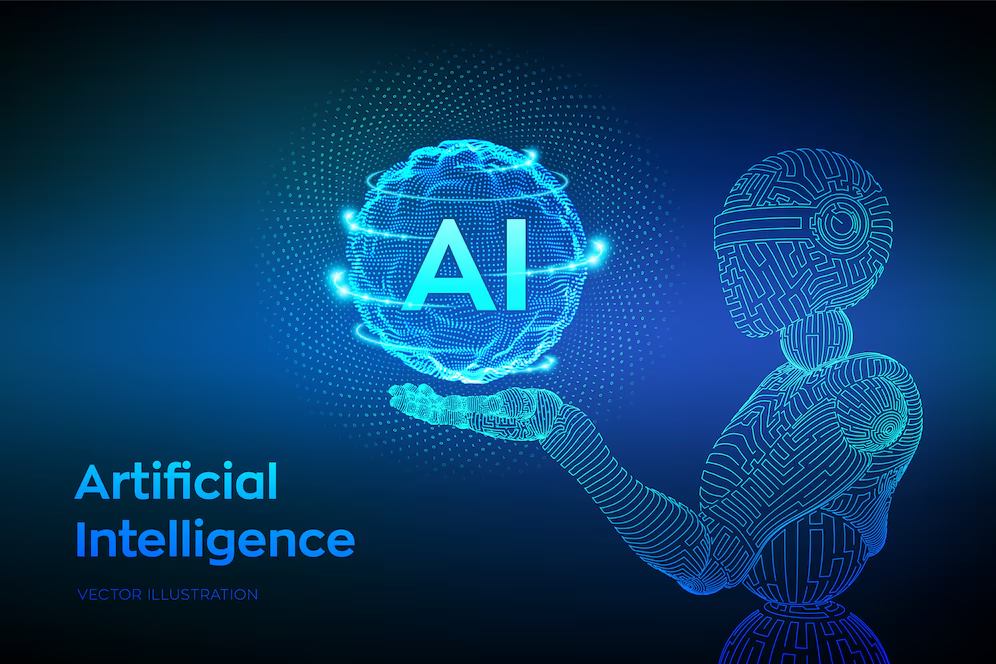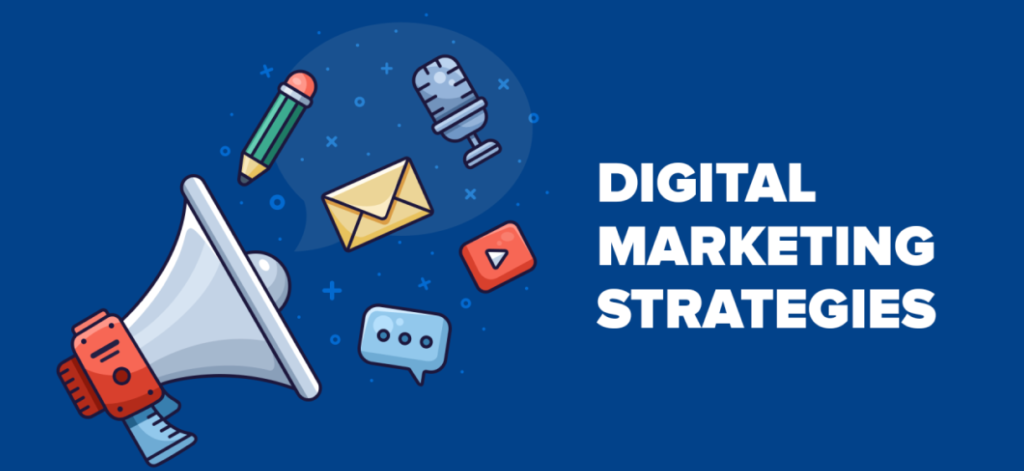In today’s fast-paced digital world, Artificial Intelligence (AI) is revolutionizing marketing automation by enhancing customer engagement, optimizing ad campaigns, and personalizing content. Businesses are leveraging AI-driven tools to streamline operations, boost efficiency, and maximize ROI.
In this blog, we’ll explore seven powerful examples of AI in marketing automation, demonstrating how businesses can harness AI to enhance their marketing strategies.
1. AI-Powered Chatbots for Customer Support and Engagement
One of the most common applications of AI in marketing automation is chatbots. These AI-driven virtual assistants can handle customer inquiries, provide product recommendations, and offer support in real time.
How AI Chatbots Enhance Marketing:
✅ 24/7 Customer Support: AI chatbots operate round the clock, ensuring customers receive instant responses at any time.
✅ Personalized Interactions: Advanced chatbots use Natural Language Processing (NLP) to understand customer preferences and deliver relevant responses.
✅ Lead Generation & Qualification: Chatbots engage visitors, collect data, and qualify leads before passing them to human agents.
Real-Life Example:
Sephora’s AI chatbot on Facebook Messenger provides beauty tips, product recommendations, and even virtual try-on features, enhancing the shopping experience for users.
2. AI-Driven Email Marketing for Personalization
Email marketing remains one of the most effective marketing strategies, and AI is taking it to the next level. AI-driven email marketing platforms analyze user behavior to send highly personalized content, increasing engagement and conversions.
How AI Enhances Email Marketing:
✅ Behavior-Based Segmentation: AI categorizes users based on past interactions, ensuring tailored email campaigns.
✅ Smart Subject Lines & Content: AI-powered tools like Phrasee optimize subject lines and content to improve open rates.
✅ Optimized Send Times: AI analyzes recipient behavior to send emails at the most effective times.
Real-Life Example:
Netflix uses AI-powered email campaigns to recommend shows and movies based on users’ watch history, increasing engagement and customer retention.
3. AI for Predictive Analytics in Customer Insights
AI-driven predictive analytics helps businesses anticipate customer behavior, optimize marketing campaigns, and improve decision-making. By analyzing past data, AI can forecast trends and suggest marketing actions to enhance conversions.
How Predictive Analytics Works in Marketing:
✅ Customer Purchase Prediction: AI predicts when a customer is likely to make a purchase and recommends the best approach.
✅ Churn Prevention: AI identifies customers at risk of leaving and suggests retention strategies.
✅ Dynamic Pricing Strategies: AI analyzes market trends to adjust product pricing for maximum profitability.
Real-Life Example:
Amazon uses AI-driven predictive analytics to recommend products, optimize pricing, and personalize the shopping experience.
4. AI-Powered Content Generation & Optimization
Creating high-quality content consistently is a challenge for marketers, but AI-driven tools are simplifying the process. AI can generate blog posts, social media captions, and even video content, helping brands maintain an active online presence.
How AI Supports Content Marketing:
✅ Automated Content Creation: AI tools like Jasper and Copy.ai generate blog articles, product descriptions, and ad copy.
✅ SEO Optimization: AI tools analyze keywords and suggest improvements for better search rankings.
✅ Content Personalization: AI tailors content based on user behavior and preferences.
Real-Life Example:
The Washington Post’s AI tool “Heliograf” automates news reporting, allowing journalists to focus on in-depth analysis.
5. AI for Social Media Marketing & Management
Social media is a crucial marketing channel, and AI is helping brands optimize their strategies by automating content scheduling, analyzing audience behavior, and improving engagement.
How AI Enhances Social Media Marketing:
✅ Automated Scheduling & Posting: AI tools like Hootsuite and Buffer optimize posting times for maximum reach.
✅ Sentiment Analysis: AI analyzes audience sentiments to adjust brand messaging.
✅ AI-Powered Visual Recognition: AI tools detect trends in images and videos to recommend relevant content.
Real-Life Example:
Coca-Cola uses AI-powered tools to analyze social media conversations and understand consumer sentiment, helping them tailor their campaigns.
6. AI in Programmatic Advertising for Precise Targeting
AI has transformed digital advertising through programmatic advertising, which uses AI algorithms to buy and place ads automatically, ensuring that they reach the right audience at the right time.
How AI Enhances Advertising:
✅ Real-Time Bidding (RTB): AI automates ad placements in real time, optimizing ad spend.
✅ Hyper-Personalized Ads: AI analyzes user data to display highly relevant ads.
✅ Fraud Detection: AI identifies and prevents ad fraud, improving ROI.
Real-Life Example:
Google Ads & Facebook Ads use AI-driven algorithms to optimize ad placements, ensuring better engagement and conversion rates.
7. AI-Powered Voice Search & Virtual Assistants
With the rise of voice assistants like Alexa, Siri, and Google Assistant, brands are optimizing their marketing strategies for voice search. AI helps businesses tailor content for voice queries, improving their online visibility.
How AI Supports Voice Search Marketing:
✅ Conversational SEO: AI helps businesses optimize content for natural language queries.
✅ Voice-Activated Shopping: AI allows customers to shop using voice commands.
✅ Enhanced Customer Experience: Voice assistants provide instant support and recommendations.
Real-Life Example:
Domino’s Pizza allows customers to order food using voice assistants, making the ordering process seamless and efficient.
Conclusion
AI is transforming marketing automation, making campaigns more efficient, personalized, and data-driven. From AI-powered chatbots and predictive analytics to voice search and programmatic advertising, businesses that leverage AI can stay ahead of the competition and drive better results.
If you’re looking to enhance your marketing strategy, integrating AI-driven tools can be a game-changer for your brand. Are you ready to embrace AI in your marketing efforts? 🚀


